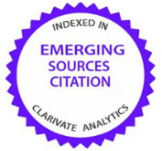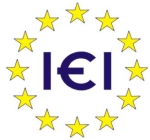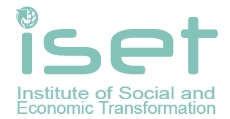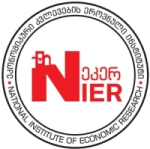Analysis and evaluation of the impact of progressive development on economic growth and sustainability of hotel and restaurant business
Abstract
Introduction. The problem of ensuring the economic sustainability of modern hotel and restaurant businesses is due to the need to ensure their sustainable development in a changing external environment, unstable market conditions, increased competition and rising prices for production resources. Advantages in solving these problems provide reduction of production costs, diversification of activities, novelty of products / services, technical and technological updating and improvement of material and technical base, improvement of management system, working conditions and financial condition of the enterprise, which is directly related to the economic efficiency of the business process. Since overall efficiency is the output of the production process and is defined as the ratio of output to cost of operations, and its increase provides an increase in economic effect, the most favourable economic conditions and competitive advantages in the market, the problem of establishing the relationship between efficiency gains and economic sustainability of enterprises is exacerbated.
Aim and tasks. The purpose of the study is to analyze and determine the degree of influence of the factors of progressive development on improving the efficiency of use of production resources and ensuring the stability of functioning of the enterprises of the hotel and restaurant business through modeling, calculation of indicators of progressive development.
Results. As a socio-economic system, an enterprise is characterized by complex multicomponent relationships between a large number of interdependent and interacting elements of different types, each of which can in turn be represented as a system (subsystem). The criteria of progressive economic development of the hotel and restaurant business enterprises are defined in the paper and the methods of their structural and component analysis are grounded. Models of pairwise regression between costs, types of capital investments and parameters of investment and innovation activity are constructed. The sequence of calculation of indicators of progressive economic development is offered.
Conclusions. Increasing the cost of new machinery and equipment, existing buildings and structures, new construction and acquisition of software are contributing to the growth of labor resource potential, reducing material consumption, and increasing the cost of production. On the basis of structural-component analysis regularities of differentiated mutual influence between the indices of production resources consumption and directions of investment-innovative activity are determined, indicators of progressive development are used, by which it becomes possible to measure the level of efficiency of use of resource potentials, economic growth of the enterprises of the hotel and restaurant business.
Keywords:
business, analysis, economic models, capital investments, innovation activity, progressive development.References
2. Andrushkіv B.M. Vovk, Yu. Ya, Vovk, E. P., Palyanitsya, V. Pogaydak, O. & Stoyko, I. (2012). Resource economics: theoretical and applied aspects. Ternopіl`: Terno-graf. [in Ukrainian].
3. Ansoff, H., & McDonnell, E. (1990). Implementing Strategic Management. London: Prentice Hall International.
4. Arsenyev, Y., Potemkin, L., Filyppova, S., Bratus, H., & Nikola, S. (2019). Internal audit of activity results at enterprises of hotel and restaurant business. Academy of Accounting and Financial Studies Journal, 23(2).
5. Bagur-Femenías, L., Perramon, J., & Oliveras-Villanueva, M. (2019). Effects of service quality policies in the tourism sector performance: An empirical analysis of Spanish hotels and restaurants, Sustainability, 11(3), 872.
6. Bharwani, S., Mathews, D., & Ghura, A.S. (2019). Business model innovation in the Indian hospitality industry: A study of the willingness to outsource specialty restaurants in luxury hotels, Worldwide Hospitality and Tourism Themes, 11(4).
7. Borodich S.A. (2010). Econometrics. Mіnsk: Novoe znanie. (in Belarus)
8. Bowen, J., & Morosan, C. (2018). Beware hospitality industry: the robots are coming, Worldwide Hospitality and Tourism Themes, 10(6).
9. Della Volpi, Y., & Paulino, S.R. (2018). The sustainability of services: Considerations on the materiality of accommodation services from the concept of life cycle thinking, Journal of Cleaner Production, 192.
10. Fedotova, M.A. (2011). How to assess the financial stability of the enterprise. SPb.: Izdatelstvo Lan. (in Russian)
11. Koval, V., Mykhno, Y., Antonova, L., Plekhanov, D., & Bondar, V. (2019). Analysis of environmental factors’ effect on the development of tourism. Journal of Geology, Geography and Geoecology, 28(3).
12. Kuhzady, S., & Ghasemi, V. (2019). Factors influencing customers' satisfaction and dissatisfaction with hotels: A text-mining approach, Tourism Analysis, 24(1).
13. Lestari, R.A., & Faturohman, T. (2019). The implementation of qualitative comparative analysis (QCA) to define the working capital management strategy of hotels in Indonesia, International Journal of Trade and Global Markets, 12(3-4).
14. Lueckl, J., Weyermair, K., Matt, M., Manner, K., & Fuchs, K. (2019). Results of official food control in Austria 2010–2016. Food Control, 99.
15. Medvedev, V.A. (2010). Sustainable development of society: models, strategy. Moscow: Akademiia. (in Russian)
16. Merzlikina, G.S. (2009). Economic viability of production systems. Moscow: Vy`sshaia shkola. (in Russian)
17. Radchenko, S.G. (2010). Stands for estimating statistical models. Kiev: PP “Sansparel”. (in Ukrainian)
18. Raizberg, B. (2009). Market economy. Moscow: Delovaia zhizn`. (in Russian)
19. Setiadi, R. (2019). Assessment of utilization of social media marketing for providing reliable information-based decision making for business service excellence in hotel sector. Journal of Management Information and Decision Science, 22 (4).
20. Vasilenko, A.V. (2005). Sustainable Enterprise Management. Kyiv: Tsentr uchebnoyj literatury [in Ukrainian].
21. Verevka, T.V. (2019). Development of industry 4.0 in the hotel and restaurant business. IBIMA Business Review, 324071.
22. Kostetska, K., Khumarova, N., Umanska, Y., Shmygol, N., & Koval, V. (2020). Institutional qualities of inclusive environmental management in sustainable economic development. Management Systems in Production Engineering, 28 (2), 15-22. https://doi.org/10.2478/mspe-2020-0003
23. Kvach, Y., Koval, V., & Hrymaliuk, A. (2018). Tourism and hospitality industry in the context of global economic development. Economics. Ecology. Socium, 2(4), 11-21. doi.org/10.31520/2616-7107/2018.2.4-2

This work is licensed under a Creative Commons Attribution-NonCommercial 4.0 International License.
If the article is accepted for publication in the journal «Economics. Ecology. Socium» the author must sign an agreementon transfer of copyright. The agreement is sent to the postal (original) or e-mail address (scanned copy) of the journal editions.





















